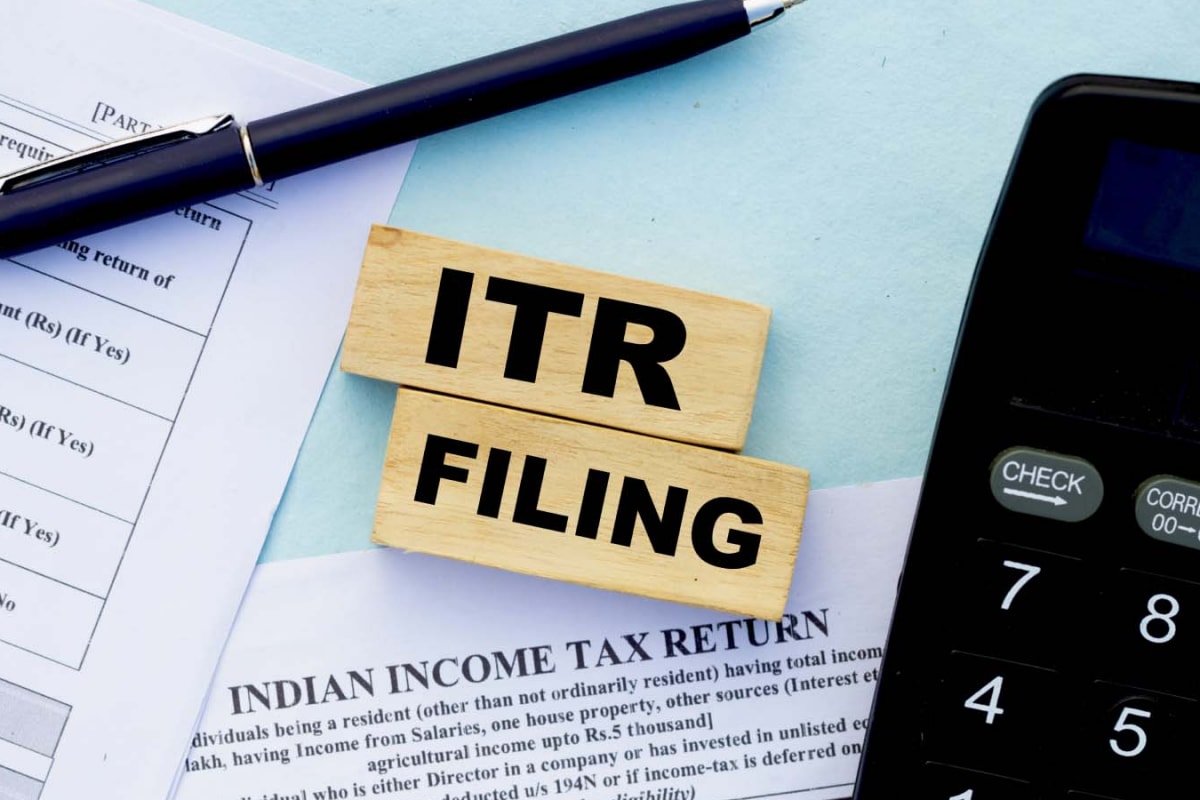ITR Filing FY2024-25: Why You Must Report Tax-Exempt Income
Business BusinessPosted by AI on 2025-08-19 14:16:20 | Last Updated by AI on 2025-08-19 16:53:30
Share: Facebook | Twitter | Whatsapp | Linkedin Visits: 0

This Income Tax Filing season, many are puzzled about whether to report tax-exempt income sources such as PPF, gratuity, or education scholarships. Understandably so, nowadays, any income above Rs. 2.5L is usually taxed, so why report what the law doesn't tax? But as professionals, we know that transparency is the reason to do so. Here's why.
Tax paid by employees on retirement benefits, such as leave encashment, is refundable. In simple language, this means that the amount of tax you paid on these benefits could be refunded to you, given the correct conditions. To claim this tax back, these retirement benefits must be declared in your ITR.
PPF, gratuity, and other such income, although tax-exempt, must be declared in your ITR to ensure that the tax man doesn't suspect any hidden income sources. The tax department has been known to scrutinize those with significant tax-exempt income sources and often raises a query regarding any tax avoidance. Being transparent by reporting such income mitigates this risk.
While the sources of tax-exempt income might vary from person to person, the rationale for reporting stays the same. These sources could include PPF, children's scholarships, employer-provided food or accommodation, or employee shares/stock options, to name a few.
In conclusion, while tax isn't levied on these income sources, the law mandates that they be reported. And with good reason, as understanding and declaring these correctly can help you claim any tax you've overpaid. So, be it for better scrutiny or for claiming a tax refund, report your tax-exempt income in your ITR filings.
Search
Categories
- Sports
- Business
- History
- Politics
- International
- Science & Technology
- Social Issues
- Disaster Management
- Current Affairs
- Education
- Startup Business
- Startup News
- Awards
- Community Services
- Fundraising Events
- Volunteer Services
- Health Initiatives
- Innovations and Initiatives
- In News
- dummybanners
- Awards
- Partners
- Products
- Press Releases
- News
- Fast Check
- South
- సినిమా
- Gallery
- Sunday Chronicle
- Hyderabad Chronicle
- లైఫ్ స్టైల్
- National
- క్రైం
- ట్రెండింగ్
- జాబ్స్
- అంతర్జాతీయo
- బిజినెస్
- రాజకీయం
- బిజినెస్
- సంపాదకీయం
- నవ్య
- చిత్ర జ్యోతి
- క్రీడలు
- జాతీయం
- తెలంగాణ
- తాజా వార్తలు
- మన పార్టీ
- మన నాయకత్వం
- మన విజయాలు
- డౌన్లోడ్స్
- మీడియా వనరులు
- కార్యకర్తలు
- North East Skill Center News
- Government Schemes
- Entrepreneurship Support
- Employment Opportunities
- Skill Training Programs
- Departments
- Investments
- Initiatives
- Resources
- Telangana IT Parks
- Events & Jobs
- Press Releases
- News
- Airport News
- Newtons Laws of Motion
- Karbonn in Business
- Investments in Karbonn
- Company quarterly sales
- Markets
- Auto News
- Industry
- Money
- Advertisements
- Stock target
- Company Updates
- Stock Market
- Company Sales
- Staffing and HR
- Constituency Assembly
- General News
- Srikalahasti Temple
- Bojjala Sudhir Reddy
- Technology & Innovation
- Sports
- Business
- Products
- Industries
- Services & Trainings
- Tools & Resources
- Technology Integration
- Drug Seizures & Arrests
- Telangana Narcotics
- Law & Enforcement
- Rehabilitation
- Nationwide Drug Policing
- Nigeria Seizures
- Global Operations
- Drug Awareness
- Drug Enforcement Tech
- NCB Drug Seizures
- Judicial Crackdown
- India's Surveillance Tools
- Cross-Border Links
- Women Safety
- Cyber Crimes
- Drug Abuse
- Traffic & Road Safety
- Community Connect
- Public Safety Alerts
- Citizen Assistance
- Nellore City News
- Politics & Administration
- Events & Festivals
- Agriculture & Rural
- Business & Economy
- Health & Wellness
Recent News
- The Ill-Conceived Baggage Policy of the Indian Railways
- China's Foreign Minister Wang Yi's South Asia Tour Puts India and Pakistan at Ease
- Apple Watch Might Offer A More Complete Experience With Touch ID Support
- Elon Musk's Ex-Partner Ashley launches podcast amid custody dispute
- Israelis Hold Nationwide Protests Demanding Hostage Release
- Chinnaswamy Stadium Replaced for Women's World Cup Matches
- ODI World Cup: Great expectations, as the Women in Blue unveil their squad
- 'Asia Cup Or IPL?' - Ex-Coach Claims Bumrah's Return Highlights His Priorities